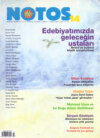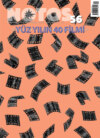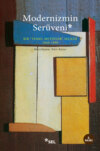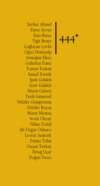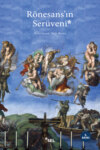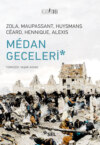Kitabı oku: «The German Classics of the Nineteenth and Twentieth Centuries, Volume 06», sayfa 3
Yazı tipi:
POOR PETER24 (1822)
1
Grete and Hans come dancing by,
They shout for very glee;
Poor Peter stands all silently,
And white as chalk is he.
Grete and Hans were wed this morn,
And shine in bright array;
But ah, poor Peter stands forlorn,
Dressed for a working-day.
He mutters, as with wistful eyes
He gazes at them still:
"'Twere easy—were I not too wise—
To do myself some ill…."
2
"An aching sorrow fills my breast,
My heart is like to break;
It leaves me neither peace nor rest,
And all for Grete's sake.
"It drives me to her side, as though
She still could comfort me;
But in her eyes there's something now
That makes me turn and flee.
"I climb the highest hilltop where
I am at least alone;
And standing in the stillness there
I weep and make my moan."
3
Poor Peter wanders slowly by;
So pale is he, so dull and shy,
The very neighbors in the street
Turn round to gaze, when him they meet.
The maids speak low: "He looks, I ween,
As though the grave his bed had been."
Ah no, good maids, ye should have said
"The grave will soon become his bed."
He lost his sweetheart—so, may be,
The grave is best for such as he;
There he may sleep the years away,
And rest until the Judgment-day.
* * * * *
THE TWO GRENADIERS25 (1822)
To France were traveling two grenadiers,
From prison in Russia returning,
And when they came to the German frontiers,
They hung down their heads in mourning.
There came the heart-breaking news to their ears
That France was by fortune forsaken;
Scattered and slain were her brave grenadiers,
And Napoleon, Napoleon was taken.
Then wept together those two grenadiers
O'er their country's departed glory;
"Woe's me," cried one, in the midst of his tears,
"My old wound—how it burns at the story!"
The other said: "The end has come,
What avails any longer living
Yet have I a wife and child at home,
For an absent father grieving.
"Who cares for wife? Who cares for child?
Dearer thoughts in my bosom awaken;
Go beg, wife and child, when with hunger wild,
For Napoleon, Napoleon is taken!
"Oh, grant me, brother, my only prayer,
When death my eyes is closing:
Take me to France, and bury me there;
In France be my ashes reposing.
"This cross of the Legion of Honor bright,
Let it lie near my heart, upon me;
Give me my musket in my hand,
And gird my sabre on me.
"So will I lie, and arise no more,
My watch like a sentinel keeping,
Till I hear the cannon's thundering roar,
And the squadrons above me sweeping.
"Then the Emperor comes! and his banners wave,
With their eagles o'er him bending,
And I will come forth, all in arms, from my grave,
Napoleon, Napoleon attending!"
* * * * *
BELSHAZZAR26 (1822)
To midnight now the night drew on;
In slumber deep lay Babylon.
The King's house only was all aflare,
For the King's wild crew were at revel there.
Up there in the King's own banquet hall,
Belshazzar held royal festival.
The satraps were marshaled in glittering line
And emptied their beakers of sparkling wine.
The beakers they clinked, and the satraps' hurras
in the ears of the stiff-necked King rang his praise.
The King's hot cheeks were with revel dyed,
The wine made swell his heart with pride.
Blind madness his haughty stomach spurred,
And he slandered the Godhead with sinful word,
And strutting in pride he blasphemed, the crowd
Of servile courtiers applauding loud.
The King commanded with haughty stare;
The slave was gone, and again was there.
Much wealth of gold on his head bare he;
'Twas reft from Jehovah's sanctuary.
And the King took hold of a sacred cup
With his impious hand, and they filled it up;
And he drank to the bottom in one deep draught,
And loud, the foam on his lips, he laughed:
"Jehovah! Thy glories I spit upon;
I am the King of Babylon!"
But scarce had the awful words been said
When the King's heart withered with secret dread.
The boisterous laughter was stifled all,
And corpselike still did wax the hall;
Lo! lo! on the whited wall there came
The likeness of a man's hand in flame,
And wrote, and wrote, in letters of flame,
And wrote and vanished, and no more came.
The King stark-staring sat, a-quail,
With knees a-knocking, and face death-pale,
The satraps' blood ran cold—none stirred;
They sat like statues, without a word.
The Magians came; but none of them all
Could read those letters of flame on the wall.
But in that same night of his vaunting vain
By his satraps' hand was Belshazzar slain.
* * * * *
THE PILGRIMAGE TO KEVLAAR27 (1823)
1
The mother stood at the window;
Her son lay in bed, alas!
"Will you not get up, dear William,
To see the procession pass?"
"O mother, I am so ailing,
I neither can hear nor see;
I think of my poor dead Gretchen,
And my heart grows faint in me."
"Get up, we will go to Kevlaar;
Your book and your rosary take;
The Mother of God will heal you,
And cure your heart of its ache."
The Church's banners are waving,
They are chanting a hymn divine;
'Tis at Köln is that procession,
At Köln upon the Rhine.
With the throng the mother follows;
Her son she leads with her; and now
They both of them sing in the chorus,
"Ever honored, O Mary, be thou!"
2
The Mother of God at Kevlaar
Is drest in her richest array;
She has many a cure on hand there,
Many sick folk come to her today.
And her, for their votive offerings,
The suffering sick folk greet
With limbs that in wax are molded,
Many waxen hands and feet.
And whoso a wax hand offers,
His hand is healed of its sore;
And whoso a wax foot offers,
His foot it will pain him no more.
To Kevlaar went many on crutches
Who now on the tight-rope bound,
And many play now on the fiddle
Had there not one finger sound.
The mother she took a wax taper,
And of it a heart she makes
"Give that to the Mother of Jesus,
She will cure thee of all thy aches."
With a sigh her son took the wax heart,
He went to the shrine with a sigh;
His words from his heart trickle sadly,
As trickle the tears from his eye.
"Thou blest above all that are blest,
Thou virgin unspotted divine,
Thou Queen of the Heavens, before thee
I lay all my anguish and pine.
"I lived with my mother at Köln,
At Köln in the town that is there,
The town that has hundreds many
Of chapels and churches fair.
"And Gretchen she lived there near us,
But now she is dead, well-a-day!
O Mary! a wax heart I bring thee,
Heal thou my heart's wound, I pray!
"Heal thou my heart of its anguish,
And early and late, I vow,
With its whole strength to pray and to sing, too,
'Ever honored, O Mary, be thou!'"
3
The suffering son and his mother
In their little bed-chamber slept;
Then the Mother of God came softly,
And close to the sleepers crept.
She bent down over the sick one,
And softly her hand did lay
On his heart, with a smile so tender,
And presently vanished away.
The mother sees all in her dreaming,
And other things too she marked;
Then up from her slumber she wakened,
So loudly the town dogs barked.
There lay her son, to his full length
Stretched out, and he was dead;
And the light on his pale cheek flitted
Of the morning's dawning red.
She folded her hands together,
She felt as she knew not how,
And softly she sang and devoutly,
"Ever honored, O Mary, be thou!"
* * * * *
THE RETURN HOME (1823-24)
128
Once upon my life's dark pathway
Gleamed a phantom of delight;
Now that phantom fair has vanished,
I am wholly wrapt in night.
Children in the dark, they suffer
At their heart a spasm of fear;
And, their inward pain to deaden,
Sing aloud, that all may hear.
I, a madcap child, now childlike
In the dark to sing am fain;
If my song be not delightsome,
It at least has eased my pain.
229
We sat at the fisherman's cottage,
And gazed upon the sea;
Then came the mists of evening,
And rose up silently.
The lights within the lighthouse
Were kindled one by one,
We saw still a ship in the distance
On the dim horizon alone.
We spoke of tempest and shipwreck,
Of sailors and of their life,
And how 'twixt clouds and billows
They're tossed, 'twixt joy and strife.
We spoke of distant countries
From North to South that range,
Of strange fantastic nations,
And their customs quaint and strange.
The Ganges is flooded with splendor,
And perfumes waft through the air,
And gentle people are kneeling
To Lotos flowers fair.
In Lapland the people are dirty,
Flat-headed, large-mouthed, and small;
They squat round the fire and, frying
Their fishes, they shout and they squall.
The girls all gravely listened,
Not a word was spoken at last;
The ship we could see no longer,
Darkness was settling so fast.
330
You lovely fisher-maiden,
Bring now the boat to land;
Come here and sit beside me,
We'll prattle hand in hand.
Your head lay on my bosom,
Nor be afraid of me;
Do you not trust all fearless
Daily the great wild sea?
My heart is like the sea, dear,
Has storm, and ebb, and flow,
And many purest pearl-gems
Within its dim depth glow.
431
My child, we were two children,
Small, merry by childhood's law;
We used to creep to the henhouse,
And hide ourselves in the straw.
We crowed like cocks, and whenever
The passers near us drew—
"Cock-a-doodle!" They thought
'Twas a real cock that crew.
The boxes about our courtyard
We carpeted to our mind,
And lived there both together—
Kept house in a noble kind.
The neighbor's old cat often
Came to pay us a visit;
We made her a bow and courtesy,
Each with a compliment in it.
After her health we asked,
Our care and regard to evince—
(We have made the very same speeches
To many an old cat since).
We also sat and wisely
Discoursed, as old folks do,
Complaining how all went better
In those good old times we knew—
How love, and truth, and believing
Had left the world to itself,
And how so dear was the coffee,
And how so rare was the pelf.
The children's games are over,
The rest is over with youth—
The world, the good games, the good times,
The belief, and the love, and the truth.
532
E'en as a lovely flower,
So fair, so pure thou art;
I gaze on thee, and sadness
Comes stealing o'er my heart.
My hands I fain had folded
Upon thy soft brown hair,
Praying that God may keep thee
So lovely, pure, and fair.
633
I would that my love and its sadness
Might a single word convey,
The joyous breezes should bear it,
And merrily waft it away.
They should waft it to thee, beloved,
This soft and wailful word,
At every hour thou shouldst hear it,
Where'er thou art 'twould be heard.
And when in the night's first slumber
Thine eyes scarce closing seem,
Still should my word pursue thee
Into thy deepest dream.
734
The shades of the summer evening lie
On the forest and meadows green;
The golden moon shines in the azure sky
Through balm-breathing air serene.
The cricket is chirping the brooklet near,
In the water a something stirs,
And the wanderer can in the stillness hear
A plash and a sigh through the furze.
There all by herself the fairy bright
Is bathing down in the stream;
Her arms and throat, bewitching and white,
In the moonshine glance and gleam.
835
I know not what evil is coming,
But my heart feels sad and cold;
A song in my head keeps humming,
A tale from the times of old.
The air is fresh and it darkles,
And smoothly flows the Rhine;
The peak of the mountain sparkles
In the fading sunset-shine.
The loveliest wonderful maiden
On high is sitting there,
With golden jewels braiden,
And she combs her golden hair.
With a golden comb sits combing,
And ever the while sings she
A marvelous song through the gloaming
Of magical melody.
It hath caught the boatman, and bound him
In the spell of a wild, sad love;
He sees not the rocks around him,
He sees only her above.
The waves through the pass keep swinging,
But boatman or boat is none;
And this with her mighty singing
The Lorelei hath done.
* * * * *
TWILIGHT36 (1825-26)
By the dim sea-shore
Lonely I sat, and thought-afflicted.
The sun sank low, and sinking he shed
Rose and vermilion upon the waters,
And the white foaming waves,
Urged on by the tide,
Foamed and murmured yet nearer and nearer—
A curious jumble of whispering and wailing,
A soft rippling laughter and sobbing and sighing,
And in between all a low lullaby singing.
Methought I heard ancient forgotten legends,
The world-old sweet stories,
Which once, as a boy,
I heard from my playmates,
When, of a summer's evening,
We crouched down to tell stories
On the stones of the doorstep,
With small listening hearts,
And bright curious eyes;
While the big grown-up girls
Were sitting opposite
At flowery and fragrant windows,
Their rosy faces
Smiling and moonshine-illumined.
* * * * *
HAIL TO THE SEA37 (1825-26)
Thalatta! Thalatta!
Hail to thee, thou eternal sea!
Hail to thee, ten thousand times, hail!
With rejoicing heart
I bid thee welcome,
As once, long ago, did welcome thee
Ten thousand Greek hearts—
Hardship-battling, homesick-yearning,
World-renowned Greek hearts.
The billows surged,
They foamed and murmured,
The sun poured down, as in haste,
Flickering ripples of rosy light;
Long strings of frightened sea-gulls
Flutter away shrill screaming;
War-horses trample, and shields clash loudly,
And far resounds the triumphant cry:
Thalatta! Thalatta!
Hail to thee, thou eternal sea!
Like accents of home thy waters are whispering,
And dreams of childhood lustrous I see
Through thy limpid and crystalline wave,
Calling to mind the dear old memories
Of dear and delightful toys,
Of all the glittering Christmas presents,
Of all the red-branched forests of coral,
The pearls, the goldfish and bright-colored shells,
Which thou dost hide mysteriously
Deep down in thy clear house of crystal.
Oh, how have I languished in dreary exile!
Like unto a withered flower
In the botanist's capsule of tin,
My heart lay dead in my breast.
Methought I was prisoned a long sad winter,
A sick man kept in a darkened chamber;
And now I suddenly leave it,
And outside meets me the dazzling Spring,
Tenderly verdant and sun-awakened;
And rustling trees shed snowy petals,
And tender young flowers gaze on me
With their bright fragrant eyes,
And the air is full of laughter and gladness,
And rich with the breath of blossoms,
And in the blue sky the birds are singing—
Thalatta! Thalatta!
Oh, my brave Anabasis-heart!
How often, ah! how sadly often
Wast thou pressed hard by the North's fair Barbarians!
From large and conquering eyes
They shot forth burning arrows;
With crooked words as sharp as a rapier
They threatened to pierce my bosom;
With cuneiform angular missives they battered
My poor stunned brains;
In vain I held out my shield for protection,
The arrows hissed and the blows rained down,
And hard pressed I was pushed to the sea
By the North's fair Barbarians—
And, breathing freely, I greet the sea,
The sea my deliverer, the sea my friend—
Thalatta! Thalatta!
* * * * *
IN THE HARBOR38 (1825-26)
Happy is he who hath reached the safe harbor,
Leaving behind him the stormy wild ocean,
And now sits cosy and warm
In the good old Town-Cellar of Bremen.
How sweet and homelike the world is reflected,
In the chalice green of Rhinewine Rummer.
And how the dancing microcosm
Sunnily glides down the thirsty throat!
Everything I behold in the glass—
History, old and new, of the nations,
Both Turks and Greeks, and Hegel and Gans,
Forests of citron and big reviews,
Berlin and Shilda, and Tunis and Hamburg;
But, above all, thy image, Beloved,
And thy dear little head on a gold-ground of Rhenish!
Oh, how fair, how fair art thou, Dearest!
Thou art as fair as the rose!
Not like the Rose of Shiras,
That bride of the nightingale, sung by Hafis,
Not like the Rose of Sharon,
That mystic red rose, exalted by prophets—
Thou art like the "Rose, of the Bremen Town-Cellar,"
Which is the Rose of Roses;
The older it grows the sweeter it blossoms,
And its breath divine it hath all entranced me,
It hath inspired and kindled my soul;
And had not the Town-Cellar Master gripped me
With firm grip and steady,
I should have stumbled!
That excellent man! We sat together
And drank like brothers;
We spoke of wonderful mystic things,
We sighed and sank in each other's arms,
And me to the faith of love he converted;
I drank to the health of my bitterest foes,
And I forgave all bad poets sincerely,
Even as I may one day be forgiven;
I wept with devotion, and at length
The doors of salvation were opened unto me,
Where the sacred Vats, the twelve Apostles,
Silently preach, yet oh, so plainly,
Unto all nations.
These be men forsooth!
Of humble exterior, in jackets of wood,
Yet within they are fairer and more enlightened
Than all the Temple's proud Levites,
Or the courtiers and followers of Herod,
Though decked out in gold and in purple;
Have I not constantly said:
Not with the herd of common low people,
But in the best and politest of circles
The King of Heaven was sure to dwell!
Hallelujah! How lovely the whisper
Of Bethel's palm-trees!
How fragrant the myrtle-trees of Hebron!
How sings the Jordan and reels with joy!
My immortal spirit likewise is reeling,
And I reel in company, and, joyously reeling,
Leads me upstairs and into the daylight
That excellent Town-Cellar Master of Bremen.
Thou excellent Town-Cellar Master of Bremen!
Dost see on the housetops the little angels
Sitting aloft, all tipsy and singing?
The burning sun up yonder
Is but a fiery and drunken nose—
The Universe Spirit's red nose;
And round the Universe Spirit's red nose
Reels the whole drunken world.
* * * * *
A NEW SPRING (1831)
139
Soft and gently through my soul
Sweetest bells are ringing,
Speed you forth, my little song,
Of springtime blithely singing!
Speed you onward to a house
Where sweet flowers are fleeting!
If, perchance, a rose you see,
Say, I send her greeting!
240
Thy deep blue eyes enchant me,
So lovingly they glow;
My gazing soul grows dreamy,
My words come strange and slow.
Thy deep blue eyes enchant me
Wherever I may go:
An ocean of azure fancies
O'erwhelms me with its flow.
341
Was once an ancient monarch,
Heavy his heart, his locks were gray,
This poor and aged monarch
Took a wife so young and gay.
Was once a page-boy handsome,
With lightsome heart and curly hair,
The silken train he carried
Of the queen so young and fair.
Dost know the old, old story?
It sounds so sweet, so sad to tell—
Both were obliged to perish,
They loved each other too well.
* * * * *
ABROAD42 (1834)
Oh I had once a beauteous Fatherland!
High used to seem
The oak—so high!—the violets nodded kind—
It was a dream.
In German I was kissed, in German told
(You scarce would deem
How sweetly rang the words): "I love thee well!—"
It was a dream.
* * * * *
THE SPHINX43 (1839)
It is the fairy forest old,
With lime-tree blossoms scented!
The moonshine with its mystic light
My soul and sense enchanted.
On, on I roamed, and, as I went,
Sweet music o'er me rose there;
It is the nightingale—she sings
Of love and lovers' woes there.
She sings of love and lovers' woes,
Hearts blest, and hearts forsaken:
So sad is her mirth, so glad her sob,
Dreams long forgot awaken.
Still on I roamed, and, as I went,
I saw before me lowering
On a great wide lawn a stately pile,
With gables peaked and towering.
Closed were its windows, everywhere
A hush, a gloom, past telling;
It seemed as though silent Death within
These empty halls were dwelling.
A Sphinx lay there before the door,
Half-brutish and half-human,
A lioness in trunk and claws,
In head and breasts a woman.
A lovely woman! The pale cheek
Spoke of desires that wasted;
The hushed lips curved into a smile,
That wooed them to be tasted.
The nightingale so sweetly sang,
I yielded to their wooing;
And as I kissed that winning face,
I sealed my own undoing.
The marble image thrilled with life,
The stone began to quiver;
She drank my kisses' burning flame
With fierce convulsive shiver.
She almost drank my breath away;
And, to her passion bending,
She clasped me close, with her lion claws
My hapless body rending.
Delicious torture, rapturous pang!
The pain, the bliss, unbounded!
Her lips, their kiss was heaven to me,
Her claws, oh, how they wounded.
The nightingale sang: "O beauteous Sphinx!
O love, love! say, why this is,
That with the anguish of death itself
Thou minglest all thy blisses?
"Oh beauteous Sphinx, oh, answer me,
That riddle strange unloosing!
For many, many thousand years
Have I on it been musing!"
24.Translator: Alma Strettell. Permission The Walter Scott Publishing Co., Ltd., London.
25.Translator: W.H. Furness. Permission The Walter Scott Publishing Co., Ltd., London.
26.Translator: John Todhunter. Permission The Walter Scott Publishing Co., Ltd., London.
27.Translator: Sir Theodore Martin. Permission The Walter Scott Publishing Co., Ltd., London.
28.Translator: Sir Theodore Martin. Permission William Blackwood & Sons, London.
29.Translator: Kate Freiligrath-Kroeker. Permission The Walter Scott Publishing Co., Ltd., London.
30.Translator: James Thomson. Permission The Walter Scott Publishing Co., Ltd., London.
31.Translator: Elizabeth Barrett Browning. Permission The Walter Scott Publishing Co., Ltd., London.
32.Translator: Kate Freiligrath-Kroeker. Permission The Walter Scott Publishing Co., Ltd., London.
33.Translator: "Stratheir." Permission The Walter Scott Publishing Co., Ltd., London.
34.Translator: Sir Theodore Martin. Permission William Blackwood & Sons, London.
35.Translator: James Thomson. Permission The Walter Scott Publishing Co., Ltd., London.
36.Translator: Kate Freiligrath-Kroeker. Permission The Walter Scott Publishing Co., Ltd., London.
37.Translator: Kate Freiligrath-Kroeker. Permission The Walter Scott Publishing Co., Ltd., London.
38.Translator: Kate Freiligrath-Kroeker. Permission The Walter Scott Publishing Co., Ltd., London.
39.Translator: Kate Freiligrath-Kroeker. Permission The Walter Scott Publishing Co., Ltd., London.
40.Translator: Kate Freiligrath-Kroeker. Permission The Walter Scott Publishing Co., Ltd., London.
41.Translator: Charles Wharton Stork.
42.Translator: Margaret Armour. Permission William Heinemann, London.
43.Translator: Sir Theodore Martin. Permission William Blackwood & Sons, London.
Türler ve etiketler
Yaş sınırı:
0+Litres'teki yayın tarihi:
30 kasım 2018Hacim:
560 s. 1 illüstrasyonTelif hakkı:
Public Domain

